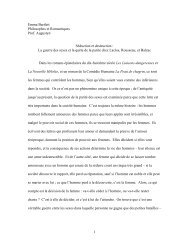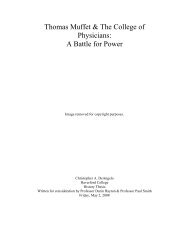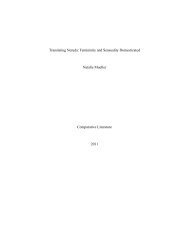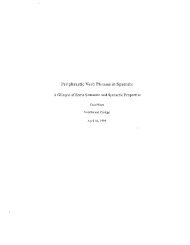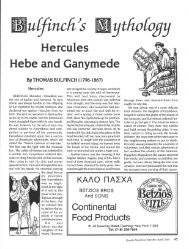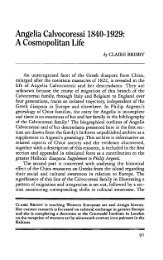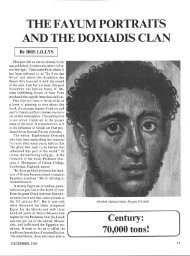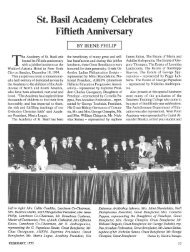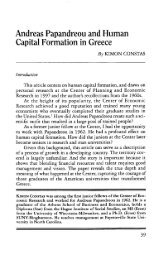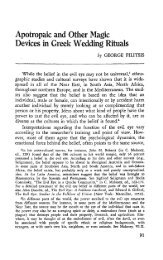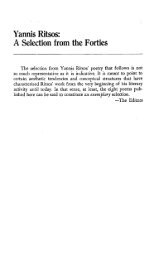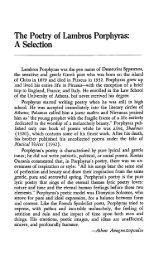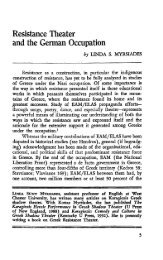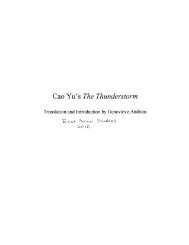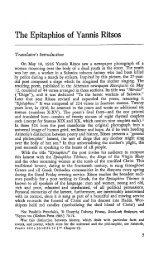Mythistorema - Triceratops Home
Mythistorema - Triceratops Home
Mythistorema - Triceratops Home
Create successful ePaper yourself
Turn your PDF publications into a flip-book with our unique Google optimized e-Paper software.
72 JOURNAL OF THE HELLENIC DIASPORA<br />
nates as the protagonist refers to events in his past life. In the second,<br />
the tragic fate of Hellenism is more in the foreground, although the<br />
protagonist's personal involvement is also evident. In the last the emphasis<br />
is on the protagonist's painful sensitivity, which sets him apart both<br />
as an individual and as a member of a nation with a long tradition and a<br />
tragic fate.<br />
In presenting the unusual circumstances that make him question<br />
whether he can die "in a normal way," the protagonist—using the impersonal<br />
"we"—starts by mentioning that "many things have passed<br />
before our eyes" and yet "we saw nothing." The implication here is that<br />
he did not have, at that time, the awareness or maturity to realize the<br />
meaning of these images. On the general level this would mean that the<br />
nation did not learn from its misfortunes and tragic mistakes through<br />
the centuries.<br />
From all these past impressions the memory had preserved only some<br />
strange images, as if they were projected on a white screen, passing and<br />
fading, related to an event that occurred one night in a walled place. The<br />
protagonist does not tell us what these images were, but he adds that<br />
they were "more strange than you." This reference connects, indirectly,<br />
the strange images with a certain person. And although the reference is<br />
very vague, the images have a strangeness in common with this person.<br />
In the second stanza the emphasis shifts to the more general level<br />
of national identity and the tragic fate of the Greeks wandering among<br />
ruins.<br />
Because we have known so well this fate of ours,<br />
Wandering among broken stones, three or six thousand years,<br />
Digging in ruined buildings which could have been, perhaps,<br />
our homes,<br />
Trying to remember dates and deeds of heroes.<br />
The broken stones here symbolize the ancient tradition but also the wars<br />
and destruction suffered by the Greek race in its long history. In the<br />
psychological climate of the period this poem was written, after a national<br />
disaster, it is this long history, "Trying to remember dates and deeds of<br />
heroes," which sustained the nation.<br />
On the personal level, the protagonist is presented wandering in an<br />
agonizing search for identity, trying to decipher the broken stones and<br />
to find his own home among ruined buildings. This restless wandering<br />
may be related to the strange event in his past mentioned in the first<br />
stanza, an event which, like an obscure point, remains submerged in his<br />
memory. It is as if whatever happened in the past has left him uncertain,<br />
suspended in the air and feeling as an imperative the need to find his<br />
roots.<br />
In the last stanza the two levels again blend as the poet uses expressions<br />
that can refer both to the Greek nation and the protagonist.



